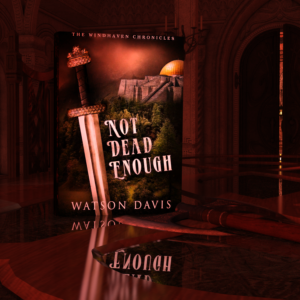When I first started writing, I wanted someone to read my prose and tell me, “Yeah. I like this. It didn’t make me gag.”
The fear that my word choice and grammatical constructions would make anyone reading my work want to hurl was a continuing phobia of mine for several years as I wrote first draft after first draft and tossed each one into the trash. Between you and me, I still haven’t overcome it.
Hemingway and The Writer’s Voice
I read book after book after book on developing your writer’s voice, and the one thing I learned from those books is that you develop your own voice by trying to write like Hemingway, using his rules and his methods, not like emulating anyone else like Faulkner. There are contests where people try to mimic Hemingway’s style and programs you can run your prose through to see if you meet his standard.
Hemingway based his style on the rules for journalists The Toronto Star gave to him when he was a young writer working there. Those rules include:
1) Use short sentences.
2) Use active voice.
3) Do not use slang.
4) Cut unnecessary words.
5) Be careful with words like “also” and “only.”
6) Avoid adjectives.
7) Avoid adverbs.
8) Use positive constructions where possible.
Hemingway took these rules and pioneered a terse, dry style of writing diametrically opposed to the longer, labyrinthine writing of writers like Henry James and William Faulkner.
Today, with a population that seems to have a shorter and shorter attention span and less patience to work through fat chunks of prose, Hemingway’s style has become more and more relevant.
I want to be successful as an author, so I took those rules to heart. I wrote that way. My prose sucked. Everything I wrote was boring, flat, and unemotional, so I read some Hemingway, and I learned a thing.
The Real vs. The Imagined
I don’t like Hemingway. I don’t like his characters. I don’t like his word choice. I don’t like what he has to say. I don’t like his voice. I’m not saying he’s not a genius or his work isn’t amazing; I’m saying I don’t enjoy reading him.

Every library should have it.
Here’s a sample of his prose:
It was evening now and he had been asleep. The sun was gone behind the hill and there was a shadow all across the plain and the small animals were feeding close to camp; quick dropping heads and switching tails, he watched them keeping well out away from the bush now. The birds no longer waited on the ground. They were all perched heavily in a tree. There were many more of them. His personal boy was sitting by the bed.
— The Snows of Kilimanjaro, Ernest Hemingway
This is not Hemingway at his finest. He’s not adhering to his own rules here with copious amounts of passive sentence constructions, a long winding sentence, words I would consider unnecessary. Here’s another random example:
At this time, while Enrique was binding the two heavy-bladed “razor-sharp” meat knives fast to the legs of the chair with two soiled napkins holding the half of each knife, wrapping them tight and then knotting them, the two chambermaids, Paco’s sisters, were on their way to the cinema to see Greta Garbo in Anna Christie. Of the two priests, one was sitting in his underwear reading his breviary and the other was wearing a nightshirt and saying the rosary. All the bullfighters except the one who was ill had made their evening appearance at the Cafe Fornos, where the big, dark-haired picador was playing billiards, the short, serious matador was sitting at a crowded table before a coffee and milk, along with the middle-aged banderillero and other serious workmen.
— The Capital of the World, Ernest Hemingway
I’m making an argument in this post for the use of longer sentences, and here is Hemingway a long, complex, winding sentence. For my taste, he’s using too much passive voice and to me, the passage is clunky.
Guilty Pleasures
One day when I was boarding a plane for a long flight, I downloaded several books on my Kindle, some old science fiction, some old fantasy, just something easy to read and enjoy on a long, boring flight.
Growing up, Robert E. Howard was one of my favorite writers and his Conan stories some of my favorite reads. One of the books I’d loaded up was a collection of his work. Robert E. Howard wrote at about the same time as Hemingway during the 20s and 30s, but where Hemingway was a darling of the glitterati, REH was a hack, some unknown, two-bit writer of glorified adventure stories with no socially redeeming values.

Look at that Frazetta cover. Who in their right mind wouldn’t want to read this?
Where Hemingway is supposed to be tight and understated, REH is loose and overwrought, but I enjoy reading REH. I lose myself in REH’s stories in ways I don’t with Hemingway’s, even though REH’s prose is not elegant. I like REH’s voice. When he’s telling a story about a bunch of half-naked savages fighting with swords in a jungle, he uses his voice to make you think you’re there in that steamy jungle watching them, not hearing the report on from a black and white newsreel.
I have mixed emotions about liking REH. On the one hand, I like reading his stories. On the other hand, I know it’s a guilty pleasure, something you’re not supposed to like but do, anyway.
Another writer I love with mixed emotions is David Weber. The first several books of his Honor Harrington series are pure joy. I love his characters, his plots, and his messages, but I don’t love his words. In those books, he writes with a dry style, but sometimes he resorts to info-dumps and talking heads.
The book that started the Honor-verse.
These realizations, that I love REH’s voice but not his prose, that I love Weber’s stories but not his voice, that I don’t love Hemingway, would not have had any real impact on my writing left all alone, but on The Great Courses’ site I bought (and watched) Building Great Sentences by Brooks Landon. This lecture series discusses how to build complex sentences, sentences with winding structures, with clause after clause piled up one after the other in a rhythmic and lyrical style. He draws on the words and sentences of many modern writers and theorists to give examples of the style, including Hemingway.
On the other hand, a novelist must consider his audience and their likes and dislikes. I’ve always been of the belief that as an artist, as a writer, and as a musician, the only person I can aim to please is myself because I’m the only person whose likes and dislikes I can know. If I try to create a piece of art based on what I think other people like, I can miss all the marks and end up creating something I hate and other people find a blatant attempt to please a caricature of them they may find distasteful and odious.
I write to please myself and my loves as a reader but like I said earlier, the attention spans of people appear to be shortening and they appear to be less patient with long sentences. On writing and reading groups, I see people complaining about sentences that go on forever… TL;DR. I’ve had an editor who called one of my long sentences a “run-on” sentence, even though the sentence he was complaining about was by definition not a run-on sentence.
I love this approach to writing but you, dear reader, may not. You have to find your voice by figuring out what pleases you, what you enjoy, what makes you excited, and what satisfies the reader in you. If Hemingway’s approach is the only one you’re aware of, you could be like me, banging your head against the ideal of a what Papa Hemingway would have written instead of following your unique voice. I believe that good prose that is in a person’s unique voice(s) will have a mixture of both long and short. A writer has to learn to move effortlessly between simple and complex, merging them together into an effective whole.
Hemingway’s rules are not totally wrong, they’re just not rules. They are guidelines, something to consider when you’re editing and you’re trying to maximize the impact of your words.
Going forward, I will be aware of my sentence lengths and I might chop a sentence up here and there as a sacrifice to the Gods of Terse Writing, but I won’t sacrifice what pleases me unless it serves the story. I won’t emulate Hemingway in a misguided attempt to find my own, unique voice but I’ll try not to just write long sentence after long sentence just because I can. I won’t write things that trigger my personal gag-reflex, but I can’t promise what I write won’t trigger yours.
And for an example of my style why not download Not Dead Enough from Amazon now! If you’re on Kindle Unlimited, it’s free. You can’t beat that with a stick.


